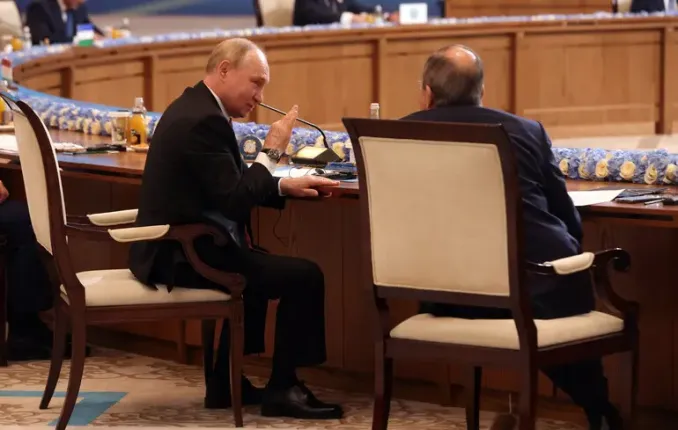Mamedov Analyzes Weaknesses of the Special Tribunal on Russian Crimes and Identifies Key “Trio” of Responsible Authorities

Former Deputy Prosecutor General Gündüz Mamedov has provided a comprehensive analysis of the upcoming Special Tribunal concerning crimes committed by the Russian Federation. According to him, a critical vulnerability of this jurisdictional structure lies in the so-called "trio" — President Vladimir Putin, Prime Minister Mikhail Mishustin, and Foreign Minister Sergey Lavrov. While the tribunal's statute provides for the prosecution of officials who made decisions to use armed force against Ukraine in violation of the UN Charter, there is a significant caveat. Mamedov emphasizes that legally, the court can investigate their actions but cannot bring them to justice as long as they remain in office. The statute stipulates that proceedings will be suspended until these officials lose their status, raising doubts about the tribunal’s ability to deliver timely justice. This weak point, concerning immunity and procedural limitations, is considered by experts as one of the tribunal's most vulnerable aspects. Until the “trio” relinquishes their positions, sentencing or definitive judgments will remain elusive. Mamedov notes that questions about investigating and prosecuting high-ranking Russian officials with immunity generate much debate among legal professionals. Many argue that such immunity contradicts international law, specifically the UN Convention on Jurisdictional Immunities and the European Convention on State Immunity. A precedent was set in 2002, when the International Court of Justice ruled in the case “Democratic Republic of Congo vs Belgium” that serving foreign ministers enjoy full immunity from criminal jurisdiction of other states, even in cases of serious international crimes. This decision confirms that immunity offers procedural protection, not personal exemption from responsibility, but it complicates prosecution during tenure. Nevertheless, certain international tribunals may prosecute sitting or former foreign ministers if they have jurisdiction. Conversely, the tribunal will likely have authority over other military-political leaders of Russia — notably Security Council members, numbering over 30, and possibly Belarusian and North Korean officials. Mamedov stresses that if Russia’s actions are proven not to be acts of self-defense, as Russian propaganda claims, then even the strongest immunities won’t protect the “trio” from accountability. This situation underscores the necessity for ongoing diplomatic and legal efforts to address the immunities issue, which remains one of the most contested and complex aspects of international justice related to Russian war crimes. Further details on Mamedov’s insights can be found through the provided link.

